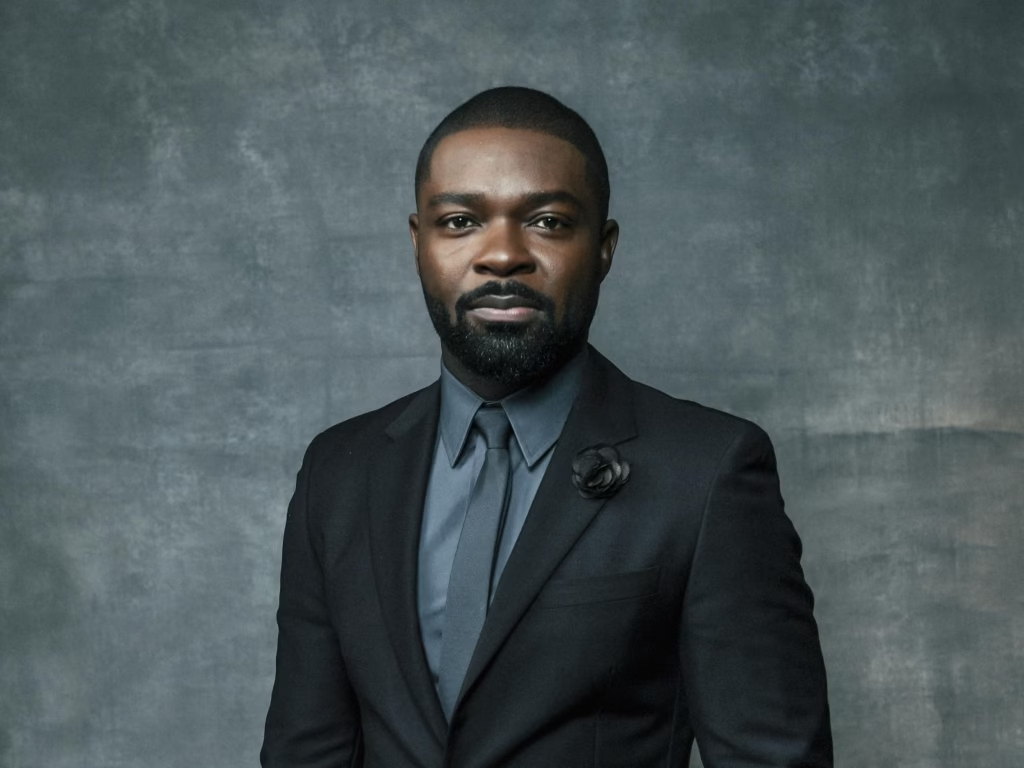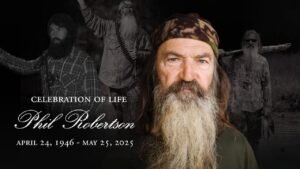David Oyelowo: Channeling Martin Luther King Jr. in Selma Through Faith

David Oyelowo: Channeling Martin Luther King Jr. in Selma Through Faith
Introduction to David Oyelowo’s Role
David Oyelowo’s portrayal of Martin Luther King Jr. in the film Selma stands as a significant milestone in both his acting career and the cinematic representation of historical figures. This film, released in 2014, chronicles the pivotal events surrounding the 1965 Selma to Montgomery marches, which were instrumental in the Civil Rights Movement. Oyelowo’s performance is not merely a representation of a powerful leader; it encapsulates the essence of King’s vision, struggles, and unwavering commitment to nonviolent resistance.
The role of Martin Luther King Jr. required Oyelowo to delve deep into the emotional and psychological complexity of a man who not only faced external challenges but also internal dilemmas. Through rigorous research and immersive preparation, Oyelowo sought to accurately depict King’s aspirations, hopes, and fears, bringing a multifaceted and relatable portrayal to the screen. His commitment to authentically embodying King showcased Oyelowo’s dedication to his craft, elevating his status as a prominent actor in Hollywood.
Beyond the immediate recognition that came with the role, Oyelowo’s performance in Selma significantly impacted his life personally and professionally. The opportunity to portray a figure with such profound historical importance led him to further engage with issues of social justice, inspiring him to use his platform as an actor to advocate for change. This role not only provided a rich character study but also resonated with Oyelowo’s own values and beliefs, making it a transformative experience in his career.
The Backstory of ‘Selma’
‘Selma,’ directed by Ava DuVernay, is a historical drama that chronicles a crucial period in the American Civil Rights Movement, specifically focusing on the 1965 Selma to Montgomery marches led by Martin Luther King Jr. and other civil rights leaders. This film serves as a poignant reminder of the struggle for racial equality and the relentless fight against systemic oppression that has been a significant part of American history. The events depicted in ‘Selma’ highlight the gross injustices faced by African Americans, particularly in the realm of voting rights, and underscore the vital role played by King and his associates during this transformative era.
The backdrop for these marches was a deeply segregated South, where the African American population was systematically denied the right to vote. The Selma marches, which spanned over several weeks, were a direct response to this disenfranchisement. They represented not only a physical journey from Selma to Montgomery but also an emotional and spiritual odyssey for the countless individuals committed to the cause of civil rights. The film does an exemplary job of portraying the courage and resilience of those who participated in the marches, illustrating the dangers they faced and the hope they held for a more equitable society.
Moreover, the legacy of Martin Luther King Jr. is a central theme in ‘Selma.’ King, portrayed by David Oyelowo, is depicted as a profoundly human figure grappling with the weight of leadership while remaining steadfast in his commitment to nonviolent protest. The film invites the audience to reflect on the impact of King’s vision and activism, urging a renewed understanding of his message in today’s context. The significance of ‘Selma’ lies not only in its historical accuracy but also in its ability to inspire contemporary discourse around civil rights and social justice, making it a vital cultural artifact that resonates with successive generations.
Connecting with Martin Luther King Jr.
David Oyelowo’s portrayal of Martin Luther King Jr. in the film “Selma” required a profoundly thoughtful approach, as he sought to embody not just the physicality but also the essence of one of America’s most significant civil rights leaders. Oyelowo undertook an extensive research process to immerse himself in King’s life, ideals, and the broader context of the Civil Rights Movement. This immersion involved studying King’s speeches, writings, and notable moments that shaped his advocacy for equality and justice.
One critical aspect of Oyelowo’s connection with King was the exploration of King’s unwavering faith, which served as the bedrock of his activism. Oyelowo, himself a man of faith, sought to understand how King’s spirituality fueled his commitment to nonviolent resistance and social justice. Through reflections on biblical principles and the teachings of Jesus, Oyelowo recognized the significance of King’s moral compass in guiding his actions. This spiritual connection helped him deliver a performance that was not only historically accurate but also emotionally resonant.
Moreover, Oyelowo engaged with historical activists and scholars to gain insights into King’s strategies and philosophies. By attending workshops and discussions centered on civil rights, he was able to grasp the complexities of the struggles faced by King and his contemporaries. This thorough research transformed Oyelowo’s performance, prompting him to internalize King’s message of hope and resilience in the face of adversity. The actor’s commitment to authentically connecting with King’s ideals allowed him to portray a multifaceted character whose legacy continues to inspire and resonate globally.
David Oyelowo’s Faith Journey
David Oyelowo’s journey in the realm of faith is multifaceted and deeply personal, playing a significant role in shaping both his life and career. Raised in a Christian household, Oyelowo’s faith was instilled in him from an early age. This spiritual foundation has been pivotal in guiding his decisions and approaches to acting, particularly in his critically acclaimed portrayal of Dr. Martin Luther King Jr. in ‘Selma.’ Throughout his career, Oyelowo often reflects on the importance of divine guidance, and how his spirituality intertwines with his professional endeavors.
In Oyelowo’s perspective, faith is not merely a personal belief system but also a source of empowerment that informs his creative expression. He describes acting as a form of ministry, suggesting that his ability to inhabit complex characters stems from a profound connection to a higher purpose. This notion became increasingly evident during the filming of ‘Selma,’ where he invoked prayer and reflection to channel the gravity and humanity of Dr. King’s legacy. Oyelowo realized that to effectively portray such an iconic figure, he needed to tap into both his personal faith and the broader spiritual significance of the civil rights movement.
The actor has often articulated how experiences of faith inform his understanding of resilience and justice. Oyelowo’s reflections reveal that he perceives his career as an opportunity to advocate for social change, resonating with the messages of equality and human dignity that Dr. King championed. By embracing his spiritual convictions, Oyelowo not only enriches his performances but also inspires others to consider the interplay between faith and artistry. His journey illustrates that spirituality can serve as a powerful catalyst in the pursuit of one’s vocation, particularly in the arts.
The Role of Faith in ‘Selma’
In the film ‘Selma,’ faith emerges as a compelling theme that intertwines with the struggle for civil rights. David Oyelowo’s portrayal of Dr. Martin Luther King Jr. vividly illustrates how deeply faith influenced King’s leadership during the historic marches from Selma to Montgomery. The film effectively captures the essence of King’s spiritual convictions and their significant role in mobilizing a community toward social justice.
Key scenes throughout ‘Selma’ depict King engaging with religious leaders and emphasizing the importance of faith in the civil rights movement. The rhetoric of faith is particularly evident during moments of prayer and reflection, which serve as a source of strength and resolve for King and his followers. For instance, before embarking on the famous march across the Edmund Pettus Bridge, King is shown praying for guidance and courage, highlighting the intersection of spirituality and activism.
Dialogues in ‘Selma’ further encapsulate the role of faith, suggesting that the struggle for civil rights is not merely a political endeavor but also a moral imperative rooted in Christian teachings. Oyelowo articulates King’s belief that faith can transcend barriers, uniting individuals from various backgrounds towards a common cause. This portrayal resonates deeply as it showcases the transformative power of faith in challenging the status quo and inspiring collective action.
The film does not shy away from illustrating the challenges faced by King’s vision, often presenting faith as both a sanctuary and a call to action. The overall narrative reinforces the idea that the journey for civil rights, steeped in faith, was essential not just for the African American community but for the moral conscience of the nation. Through Oyelowo’s performance and the film’s depiction of faith, ‘Selma’ honors the enduring legacy of Dr. King and his relentless pursuit of justice inspired by his beliefs.
Insights from Oyelowo on Leadership
David Oyelowo, in his portrayal of Martin Luther King Jr. in the film “Selma,” offers a profound perspective on leadership that resonates not only within the cinematic experience but also in real-world contexts. Drawing heavily from the legacy of King, Oyelowo emphasizes that true leadership is a confluence of courage, perseverance, and compassion. These attributes are not only essential for personal growth but are crucial in inspiring others and driving social change.
Courage, according to Oyelowo, is the cornerstone of effective leadership. It allows leaders to stand firm in the face of adversity and make tough decisions that may lead to significant transformation. When embodying King on screen, Oyelowo highlighted the importance of fearlessness in advocating for justice and equality, noting that leaders must often confront fear both within themselves and from external forces. This revelation underscores that genuine leadership requires a commitment to values, even when faced with daunting challenges.
Perseverance is another vital quality Oyelowo emphasizes. King’s journey was fraught with obstacles; however, he remained steadfast in his mission. Oyelowo learned through this portrayal that great leaders must be resilient, maintaining their vision despite failures and setbacks. This steadfastness not only motivates the leader but also galvanizes followers, instilling a sense of hope and determination within communities striving for change.
Finally, Oyelowo reflects on the necessity of compassion in leadership. Effective leaders, inspired by King, understand the importance of empathy and connection with those they serve. This compassion fosters a sense of belonging and understanding, allowing leaders to address the needs of their communities more holistically. Through his experiences, Oyelowo embodies these qualities, serving as an example of how leaders can harness the lessons from King’s legacy to inspire meaningful change in today’s world.
Audience Reception and Impact
David Oyelowo’s portrayal of Martin Luther King Jr. in the critically acclaimed film “Selma” has elicited significant praise from both audiences and critics alike. His nuanced performance captured the essence of King’s character, imbuing it with both strength and vulnerability. Many viewers noted how Oyelowo’s ability to convey King’s conviction and humanity resonated deeply, enhancing their emotional connection to the historical figure. This connection not only revitalized appreciation for King’s legacy but also encouraged audiences to reflect on the ongoing struggles for social justice today.
Critically, Oyelowo’s performance has been described as a transformative depiction of King, which transcended mere imitation. Instead, it provided a lens through which audiences could engage with King’s ideals and the intricate challenges he faced during the civil rights movement. Critics highlighted how Oyelowo captured the spirit of King’s speeches, accurately reflecting the fervor and dedication that characterized his activism. This authenticity played a pivotal role in the film’s impact, making it a potent vehicle for renewed engagement with social justice issues.
Furthermore, “Selma” emerged as a powerful cultural touchstone shortly after its release, coinciding with a resurgence in visibility for movements such as Black Lives Matter. Oyelowo’s portrayal served not only as a reflection of King’s historic significance but also as a reminder of the ongoing fight against racial injustice. The film ultimately sparked conversations about civil rights and social equity in contemporary society, linking past efforts to present-day activism. Audience members expressed that watching Oyelowo’s depiction inspired them to learn more about King’s teachings and the importance of maintaining momentum in the pursuit of equality.
Legacy of Oyelowo’s Portrayal
David Oyelowo’s portrayal of Dr. Martin Luther King Jr. in the film ‘Selma’ has significantly impacted his career, positioning him as a leading figure in contemporary cinema who adeptly addresses themes of race and social justice. His performance not only garnered critical acclaim but also solidified his status as one of the top actors showcasing the complexities of the African American experience. This role opened doors for Oyelowo, allowing him to take on more significant and varied projects that continue to resonate with audiences. Following ‘Selma,’ he has starred in films and series that explore intricate narratives, often intersecting with social issues, thereby emphasizing the importance of representation in the industry.
The legacy that Oyelowo created through his portrayal extends beyond his individual career. It has encouraged a broader discussion within Hollywood regarding the portrayal of historical figures, particularly in relation to race and leadership. By embodying Dr. King with depth and authenticity, he has revitalized interest in the civil rights movement and its relevance to contemporary issues. His commitment to telling stories that elevate marginalized voices aligns with a growing demand for more nuanced and genuine portrayals in film and television, making him a pivotal player in this transformation.
Furthermore, Oyelowo’s performance has become a reference point for future portrayals of influential leaders in cinema. His approach highlights the importance of grounding portrayals in authentic emotion and a thorough understanding of historical context. This acknowledgment of Oyelowo’s work underscores the film’s role as a cultural touchstone that resonates with ongoing dialogues about race, equality, and justice. In a broader sense, his legacy from ‘Selma’ exudes an essential assertion that the arts can profoundly influence societal perceptions and inspire future generations to engage with important social issues. Ultimately, Oyelowo’s contribution is invaluable, marking a significant step in the continuous journey toward equality and understanding through cinematic storytelling.
Conclusion: The Intersection of Faith and Art
In reflecting on David Oyelowo’s compelling portrayal of Martin Luther King Jr. in “Selma,” one cannot help but recognize the profound intersection between faith and art. Oyelowo, through his dedicated performance, demonstrates how an artist’s spiritual beliefs can significantly influence their interpretation of historical figures, lending authenticity and depth to their work. This mutual relationship enriches not only the art itself but also the audience’s engagement with the historical narrative being portrayed.
Oyelowo’s approach is emblematic of how faith can serve as a driving force, inspiring a deeper understanding of the challenges and triumphs faced by leaders like King. His commitment to embodying King’s essence reflects a genuine desire to connect with the spiritual underpinnings that motivated the Civil Rights Movement. By channeling King’s faith, Oyelowo invites viewers to explore the complexities of faith-driven activism, presenting a multifaceted view of a leader who was deeply rooted in his beliefs.
The art of portrayal involves more than technical skill; it requires an emotional and spiritual resonance that can only arise from a true understanding of the subject. Oyelowo’s portrayal showcases the vital role that faith plays in art, providing a framework through which audiences can appreciate the historical context while also grasping the emotional weight that figures like King carry. His performance thus serves as a reminder that art is not only a medium for storytelling but also a powerful vehicle through which the essence of faith can be communicated.
Ultimately, the intersection of faith and art is a testament to the power of storytelling in capturing our shared history. By understanding Oyelowo’s artistic choices, we gain insight into how faith enriches the portrayal of influential figures and highlights the enduring impact of their legacies in our contemporary society.













Leave a Reply
You must be logged in to post a comment.